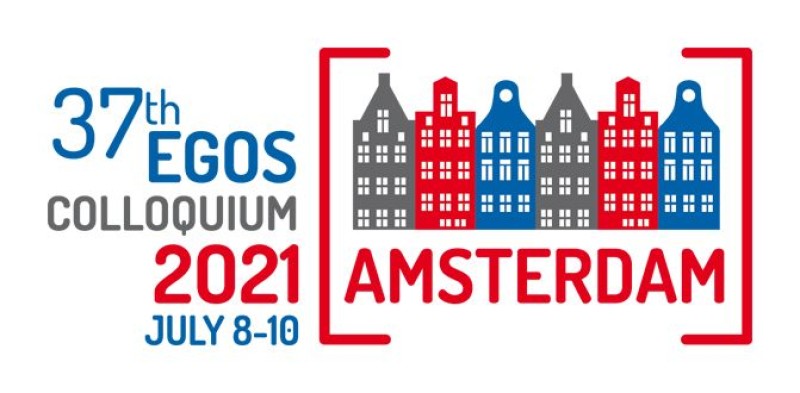Sub-theme 16: Becoming Agents of Change: Societal Disruption, Resistance, Movements, and the Formation of Activists
Call for Papers
As we write, the world appears to be engulfed in protest. Mass movements are fighting inequality, corruption, and seeking
political freedom in Bolivia, Chile, Ecuador, Gaza, Hong Kong, Iraq, Lebanon, and elsewhere. Millions of people around the
world, particularly youth, are marching in protest of the slow response by established institutions and politicians to the
climate emergency.
Mass protest, civil disobedience, and resistance to authoritative, transgressive and oppressive
conditions, figures, and institutions, is a ubiquitous and seemingly universal attribute of human organizing (Canetti, 1960;
Melucci, 1989). The question of why, how and in what form we become agents of such resistances, bent on challenging and changing
the existing relations and conditions, is an enduring question for organization studies (Davis et al, 2005; Gusfield, 1970;
McLaughlin, 1969).
Historically such work has tended to regard social, economic and political conditions,
and the perceived opportunities they afford for various repetories of protest and resistance, as the seedbed of resistance
(Gamson & Meyer, 1992). More recent scholarship, meanwhile, focuses on how individuals and groups come to embrace, shape
and, in some instances, collapse activist identities and participation in movements (Elidrissi & Courpasson, 2019; Meyer
& Jepperson, 2000, Skoglund & Böhm, 2019; Seo & Creed, 2002; Wright et al., 2012). Such work also includes a focus
on collectivities and movements themselves as agents of intentionality and change (Abdelnour et al., 2017).
A related, and perhaps underdeveloped, area of scholarship explores the intersection of reflexivity and narrative identity
formation, whereby individuals and groups come to reflexively narrate activist identities, and embrace and internalize social
movement narrartives as their own (Creed et al., 2014; Lok et al., 2019; Polletta, 1998), or encounter episodic shocks that
force the discarding one identity for another (e.g., “drop your tools”, Weick, 1993).
The purpose of this
sub-theme is to both extend and challenge these trajectories of research in resistance and activism. This sub-theme will,
for instance, welcome scholarship that draws on notions of identity formation, narrative and reflexivity to engage the underlying
problem of agency, activism and resistance in new ways and in the process develops our understanding of how individuals and
collectivities come together to enact social movement agency.
Below, we identify some questions that contributors
to the stream might consider. These are simply illustrative, and our list not meant to be exhaustive. We would welcome work
that identifies new concepts, questions, and challenges related to the sub-theme. Particularly, we welcome research that looks
at societal disruption across multiple levels of analysis.
How does the threat of climate catastrophe, or other societal and institutional disruptions, shape the formation of change agency?
How do individual author the self as activist change agents?
How do activist movements author and/or embrace collective intentionality?
How, in what ways, do biography, emotion, disenfranchisement, and psychological lack affect engagement with and enactment of activism?
How does collective action emerge from, and form, activist collectives?
How do culturally and historically sedimented features of human experience support and shape action and the articulation of activist identities?
What is the organizing structure of activism narratives, or discourses, and how do they produce, and shape activist subjects and vice versa?
What is the role, place, effect of social media in processes of collective organizing and action?
What roles might principle-based agency and disinterested agency play in activist organizing?
How are activist careers organized, sustained and reshaped?
How is activism a function of personal histories, and the working out of the desires of the other and/or significant others?
References
Abdelnour, S., Hasselbladh, H., & Kallinikos, J. (2017): “Agency and institutions in organization studies.” Organization Studies, 38 (12), 1775–1792.
- Canetti, E. (1984): Crowds and Power. Macmillan, 1984.
- Creed, W.E.D., DeJordy, R., & Lok, J. (2014): “Myths to work by: Redemptive self-myths and generative agency for organizational change.” Research in the Sociology of Organizations, 41, 111–156.
- Davis, G.F., McAdam, D., Scott, W.R., & Zald, M.N. (eds.) (2005): Social Movements and Organization Theory. Cambridge: Cambridge University Press.
- Elidrissi, Y.R., & Courpasson, D. (2019): “Body Breakdowns as Politics: Identity regulation in a high-commitment activist organization.” Organization Studies, first published online on September 9, 2019: https://doi.org/10.1177/0170840619867729.
- Gamson, W., & Meyer, D.A. (1996): “Framing political opportunity.” In: D. McAdam, J.D. McCarthy & M.N. Zald (eds.): Comparative Perspectives on Social Movements: Political Opportunities, Mobilizing Structures, and Cultural Framings. Cambridge: Cambridge University Press.
- Gusfield, J.R. (1970): Protest, Reform and Revolt: A Reader in Social Movements. Hoboken, NJ: John Wiley & Sons.
- Lok, J., Creed, W.E.D., & DeJordy, R. (2019): “From ‘Church Cruise Director’ to ‘Rabbi’: Authoring the agentic self through conventions of narrative necessity.” Research in the Sociology of Organizations, 65B, 63-83.
- McLaughlin, B. (ed.) (1969): Studies in Social Movements: A Social Psychological Perspective. New York: The Free Press.
- Melucci, A. (1989): Nomads of the Present: Social Movements and Individual Needs in Contemporary Society. Edited by J. Keane & P. Mier. Philadelphia: Temple University Press.
- Meyer, J.W., & Jepperson, R.L. (2000): “The ‘actors’ of modern society: The cultural construction of social agency.” Sociological Theory, 18 (1), 100–120.
- Polletta, F. (1998): “Contending stories: Narrative in social movements.” Qualitative Sociology, 21 (4), 419–46.
- Seo, M.-G., & Creed, W.E.D. (2002): “Institutional contradictions, praxis, and institutional change: A dialectical perspective.” Academy of Management Review, 27 (2), 222–248.
- Skoglund, A., & Böhm, S. (2019): “Prefigurative Partaking: Employees’ Environmental Activism in an Energy Utility.” Organization Studies, first punblished online on June 15, 2019: https://doi.org/10.1177/0170840619847716.
- Weick, K.E. (1993): “The collapse of sensemaking in organizations: The Mann Gulch disaster.” Administrative Science Quarterly, 38 (4), 628–652.
- Wright, C., Nyberg, D., & Grant, D. (2012): “‘Hippies on the third floor’: Climate change, narrative identity and the micro-politics of corporate environmentalism.” Organization Studies, 33 (11), 1451–1475.


